How to Become a Carpenter
There’s a shortage of carpenters in the UK, with the Construction Skills Network (CSN) 2024 report stating a need for 225,000 new construction workers by 2027. So, if you want to become a carpenter, there’s never been a better time.
What does a carpenter do? A carpenter’s job is typically divided into two main areas:
- Rough Carpentry and Structural Work: Building wooden frameworks and structures for houses and buildings, constructing walls, roofs, and floors.
- Finish Carpentry: Detailed “finishing touches” in home improvement projects, such as installing and trimming cabinetry, adding decorative accents, finalising flooring, and building bespoke furniture.
Carpentry is an ageing workforce, with over a third of workers in the UK over 50. With the home improvement sector set to grow by 40% over the next decade, it’s a great time to train to be a carpenter if you are interested in the trade.
If you’re looking for a new job where creativity and attention to detail combine, carpentry can be a great career. There will always be a need for carpenters with the push for new homes in the UK and the rise in demand for bespoke furniture, making carpentry a good choice if you’re looking for job stability paired with a steady income.
If you’re wondering how to be a carpenter, this guide will help you get started.

Table of Contents
Qualifications & Training
Wondering how to become a carpenter?
There are several ways to train to be a carpenter, including apprenticeships and formal courses.
It’s possible to work as a carpenter in the UK without formal qualifications. But, it can help your job prospects if you train and gain certifications - especially if you hope to become a self-employed carpenter.
Here are the different routes you can train as a carpenter in the UK:
Carpentry Apprenticeships
Starting as an apprentice is a standard route to becoming a fully qualified carpenter. The National Careers Service suggest the following apprenticeships:
- Carpentry and Joinery Level 2 Intermediate Apprenticeship
- Craft Carpentry and Joinery Level 3 Advanced Apprenticeship, with a focus on site carpentry or architectural joinery
- Wood Product Manufacturing Operative Level 2 Intermediate Apprenticeship, which includes furniture-making
These apprenticeships can take up to 2 years to complete and usually combine on-site practical work and standard teaching at a college or other training facility.
To find carpentry apprenticeships, search the Gov.uk website and look at trade associations to see if any are listed, such as the British Woodworking Federation. You can also look at job boards to see if local construction companies offer apprenticeships.
Carpentry apprenticeships are great ways to get hands-on experience under the supervision of experienced carpenters in the construction industry while earning a wage.
Carpentry College Courses
The most common college courses for carpenters in the UK are:
- NVQ (National Vocational Qualification) in Carpentry and Joinery (Levels 1-3): This is an industry-recognised qualification suitable for people wanting to enter carpentry.
- City & Guilds Diplomas in Carpentry: A range of courses are available, suitable for people aged 16 and above who want to enter the carpentry industry without prior experience.
- BTEC or other construction-related qualifications: BTECs are available at local learning institutions and can range from a few months in duration to 2 years.
On-the-Job Carpentry Training
If you’d prefer to learn on the job, a recognised route into carpentry is shadowing an experienced carpenter as a labourer or a “carpenter’s mate”. This is a quick route into the industry with little to no entry requirements, giving you immediate real-world experience.
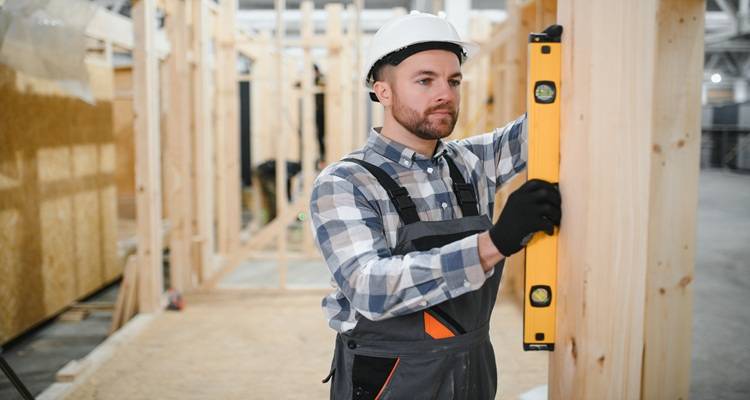
However, you won’t receive any formal qualifications or certifications from this route, so you may have difficulty securing a carpentry job if you pick this route, as some employers want to see proof of qualifications and training to offer full-time employment.
Skills Needed
Qualifications and training are just one aspect of becoming a carpenter - you’ll also need some essential skills if you want to succeed in carpentry.
Here’s a list of key skills you’ll need to become a carpenter:
Manual Dexterity and Attention to Detail
Carpentry uses your hands, so you’ll need a high level of manual dexterity and precision if you want to complete tasks to a high degree. You’ll be using saws, drills, and chisels daily, so a keen eye for detail and good hand-eye coordination are critical for success as a carpenter.
You’ll need to follow blueprints precisely to ensure quality results when fitting and installing woodwork, which is especially important if you’re working on rough carpentry and structural work.
Maths and Measuring Skills
Building structures and furniture requires precision, so you must take accurate measurements and perform calculations to ensure that what you’re building fits the space as intended.
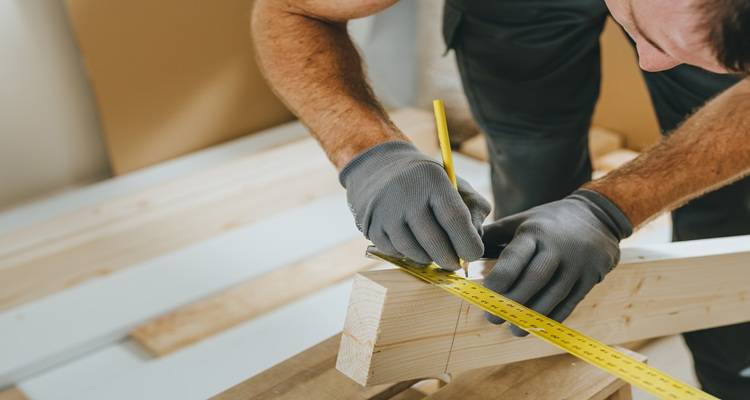
You must understand basic mathematics and geometry to do this, and an understanding of conversions between different units can also be helpful when cutting and fitting different materials.
Problem-Solving Skills
Although you may have measured correctly, unexpected situations can still crop up during your work.
You’ll need to be comfortable and able to think on your feet in these situations, mitigating challenges and finding solutions when materials don’t fit as expected or if there are unexpected obstacles or ease of access issues when you get on site.
Physical Stamina
Carpentry is an active career - you’ll be on your feet lifting, moving, and fixing heavy materials all day long, so you’ll need to have a good level of physical stamina to withstand the job's demands.

You’ll be working between workshops, construction sites, and in fully-built houses and properties, so the ability to be comfortable and adaptable to work in all environments is required.
Tools & Equipment
To work as a carpenter, you’ll need a range of tools and equipment to enable you to do the job efficiently and safely.
If you’re planning on working as a self-employed carpenter, you’ll have to buy these yourself, whereas if you’re working for a larger construction company, they’ll likely provide the equipment for you.
Here’s what you need as a carpenter:
Hand Tools
These range from saws, chisels, hammers, and screwdrivers to tape measures, levels, and squares. Hand tools are essential for ensuring detailed, precise work.
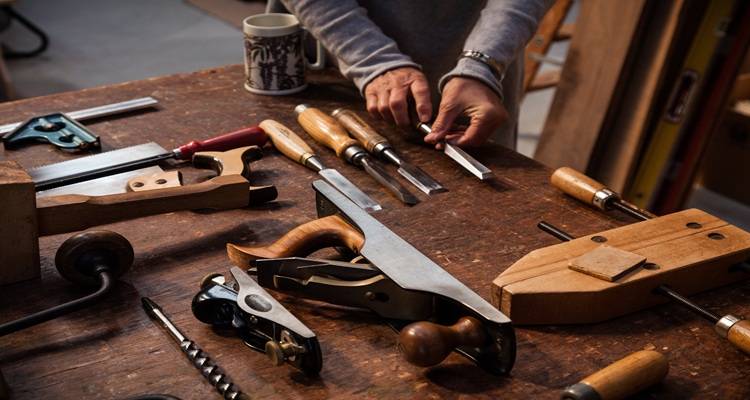
Hand tools have relatively low entry-level prices, with a set of basic tools costing between £150 and £300, depending on the brand and quality of the items. The higher the quality, the longer the tools will last.
Power Tools
Moving on to power tools, you’ll need to invest in equipment like circular saws, jigsaws, routes, planers, and sanders. Power tools help to speed up processes and are essential for cutting large sheets of material.
Power tools are more expensive than hand tools due to the mechanics involved in their construction, and a basic set can cost anywhere from £500 to £1,000, with professional-grade tools costing in excess of £1,500.
Workbenches and Clamps
A workbench is an essential part of a carpenter’s toolkit, offering stability when cutting and sanding wood - and you’ll need clamps to hold your materials in place while you’re working on them.
Prices for workbenches can start at £100 for a basic portable model and can rise in excess of £500 for larger models.
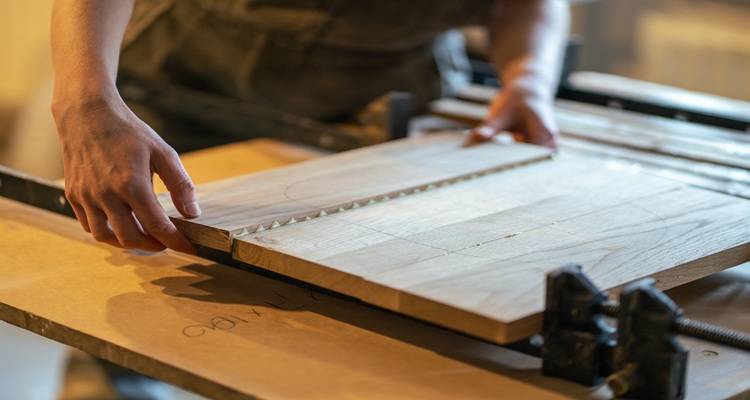
You can buy carpentry tools and equipment from trade suppliers and local hardware stores. If you know what you want and don’t mind waiting a little longer to get your equipment, you can try searching on online marketplaces and second-hand sites to find what you’re looking for at slightly lower prices - but be aware that these items might not come with the same warranties or guarantees as brand-new tools and equipment.
How to Gain Experience
Knowing how to get started in carpentry can be overwhelming, with so many routes into the industry. A good way to begin is with some simple hands-on experience.
You can practice your techniques and skills with small DIY carpentry projects at home or for friends and family. This will give you real-life experience and a taste for the problem-solving attitude you might need when taking on “real” jobs as you mitigate any potential issues that come up while doing these jobs.
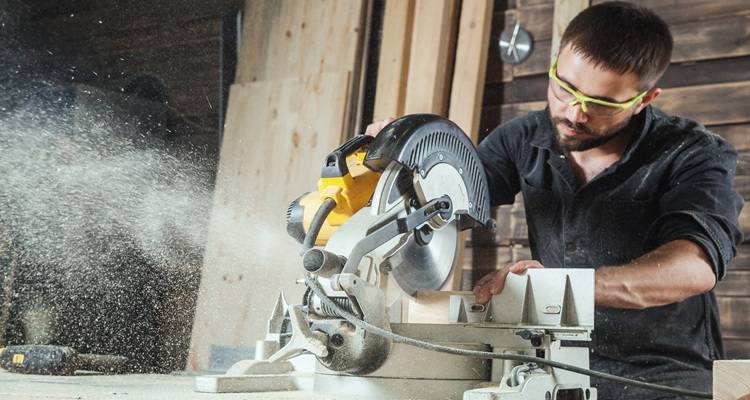
Working as a labourer or “carpenter’s mate” can be a great way to see how professional carpenters work on-site, providing invaluable knowledge that might not be available from a textbook or course. You can use this experience to build your skills and connect with local carpenters, which can help you further down the line with your job search.
Offering your carpentry skills in voluntary positions is valuable for gaining experience. Through doing this, you can build confidence and practical skills and make meaningful connections with local construction companies looking for apprentices or newly qualified carpenters to join their workforce.
Setting Up as a Carpenter
If you want to become a carpenter and like the idea of working for yourself, you’ll need to decide whether you want to set up as a sole trader or as a limited company.
Let’s take a closer look at what this means:
How to Register as a Sole Trader
Tax Requirements: Sole traders must register as self-employed with HMRC. Sole traders will pay income tax and National Insurance on any business profits.
This is calculated by an annual tax return filled in and filed with HMRC. These financial records are kept private.
The current rate of tax as a sole trader is:
- £0 - £12,570 - 0% tax
- £12,571 - £50,270 - 20% tax
- £50,271 - £125,140 - 40% tax
- £125,141+ - 45% tax
Liability: In this scenario, you (the business owner) and the business itself are seen as the same “legal entity” and have unlimited liability. This means you are personally responsible for any and all debts the business may encounter.
Best If: You want to work for yourself but don’t want or need the extra steps to become a limited company. There’s far less paperwork and regulations, with a simple tax return being due each year.
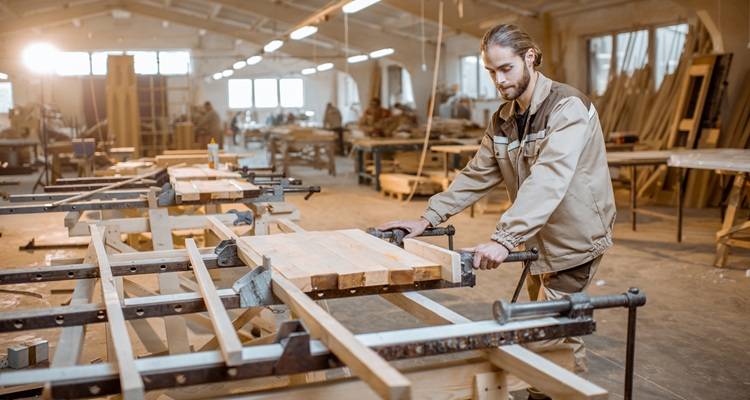
How To Register as a Limited Company
Tax Requirements: The limited company must be set up with Companies House and file annual business accounts. Within these, corporation tax must be paid, which is a tax on business profits.
Directors (the person/persons who run the company, not necessarily the company owner) must also pay income tax and National Insurance on salaries and dividends. These financial records are public.
The current rate of corporation tax is:
- >£50,000 - 19% small profits rate
- £250,000+ - 25% main rate
Liability: Limited companies act as separate entities from you (the business owner) and the business itself, with limited liability. This means that shareholders are only liable for the amount they invest in the business, and personal assets are protected from business debts.
Best If: You’ve been working as a sole trader for some years and want to take the next step to grow your business and make more efficient tax choices if you’re earning over £50,000.
Insurance Requirements
Whether you’re a sole trader or a limited company, you’ll need to have the following insurance as a carpenter:
Public Liability Insurance
If a client says they have been injured because you left your carpentry tools out and they tripped over them, public liability insurance can help to foot your legal bills. This is also true if a client has had their property damaged due to your work.
Professional Indemnity Insurance
If a client says you have provided them with poor advice that’s led them to lose income as a business - such as advising on a certain type of cabinetry that has failed or been made unsuitable for the area it’s fitted in - professional indemnity insurance can cover your legal proceedings.
This type of insurance can also help if a client accuses you of providing “negligent services”.
Creating a Website and Social Media Accounts
Getting visibility on your trade and offerings is essential when starting as a newly qualified carpenter. Post pictures and videos of your current and past work, and share these on local job boards and community sites to advertise your trade.

You should start a website and list your skills, noting your experience and any qualifications or certifications as a carpenter - this is especially important if you’re starting as self-employed as you want to build credibility and trust with potential clients.
Joining Local Business Directories and Trade Associations
Networking is an essential part of carpentry - the more people know your name and your skills, the better your chances will be for organic word-of-mouth marketing.
To boost your visibility, join local business directories to advertise your skills as a carpenter, outlining your experience and what you can offer potential clients. Make sure photos or videos accompany this as a visual aid.
You can also join trade associations such as the Federation of Master Builders and the British Woodworking Federation to build connections and position yourself as a credible, trusted member of the carpentry community.
Earnings & Career Prospects
Trainee carpenters earn £17,000 per year, with established carpenters earning up to £38,000 per year in the UK. Typically, carpenters charge between £20 to £25 per hour, depending on their geographical area.
If you’re working as a carpenter in London, you can expect to earn more in line with the higher cost of living in this area, whereas if you’re working in the north of the UK, you can expect a slightly lower salary.
You’ll typically be working between 40 and 45 hours a week, and you might need to work weekends and evenings, depending on the type of carpentry you go into. If you’re planning on becoming a self-employed carpenter, you can largely set your own working schedule and may work on a project basis instead.
There’s a high demand for skilled carpenters in the UK, especially in rough carpentry and structural work, to help with the government’s push for new homes. There’s also a rise in the want for bespoke furniture and heritage restoration, giving ample opportunities for carpenters of all specialisations.

If you’ve been working for a construction company for a while and want to branch out and start your own business as a self-employed carpenter, you can potentially open yourself up for higher earning potential.
As carpentry is an ageing profession and requires a good level of physical activity, if you want to move away from working on-site, you can transfer your practical skills and knowledge and move into teaching fresh recruits about carpentry instead. There are teaching spots available in colleges, training centres, and online courses.
For a practical experience with less manual labour, you can consider opening a workshop for custom woodwork if you have the starting capital to fund this.
FAQs
How long does it take to become a carpenter?
Do you need qualifications to be a carpenter in the UK?
How much does a carpenter earn in the UK?
How do I find carpentry apprenticeships?
Is carpentry a good career?
Sources
https://nationalcareers.service.gov.uk/job-profiles/carpenter
https://coleman-group.co.uk/the-uk-construction-skills-shortage/
http://www.bwf.org.uk/education/timber-futures/new-entrants-careers-in-woodworking/apprentice/
https://mjklosscarpentry.co.uk/35-carpentry-statistics-for-the-uk/
https://www.cityandguilds.com/qualifications-and-apprenticeships/construction/construction/6706-carpentry-and-joinery
https://www.gov.uk/set-up-limited-company
https://www.gov.uk/working-for-yourself








